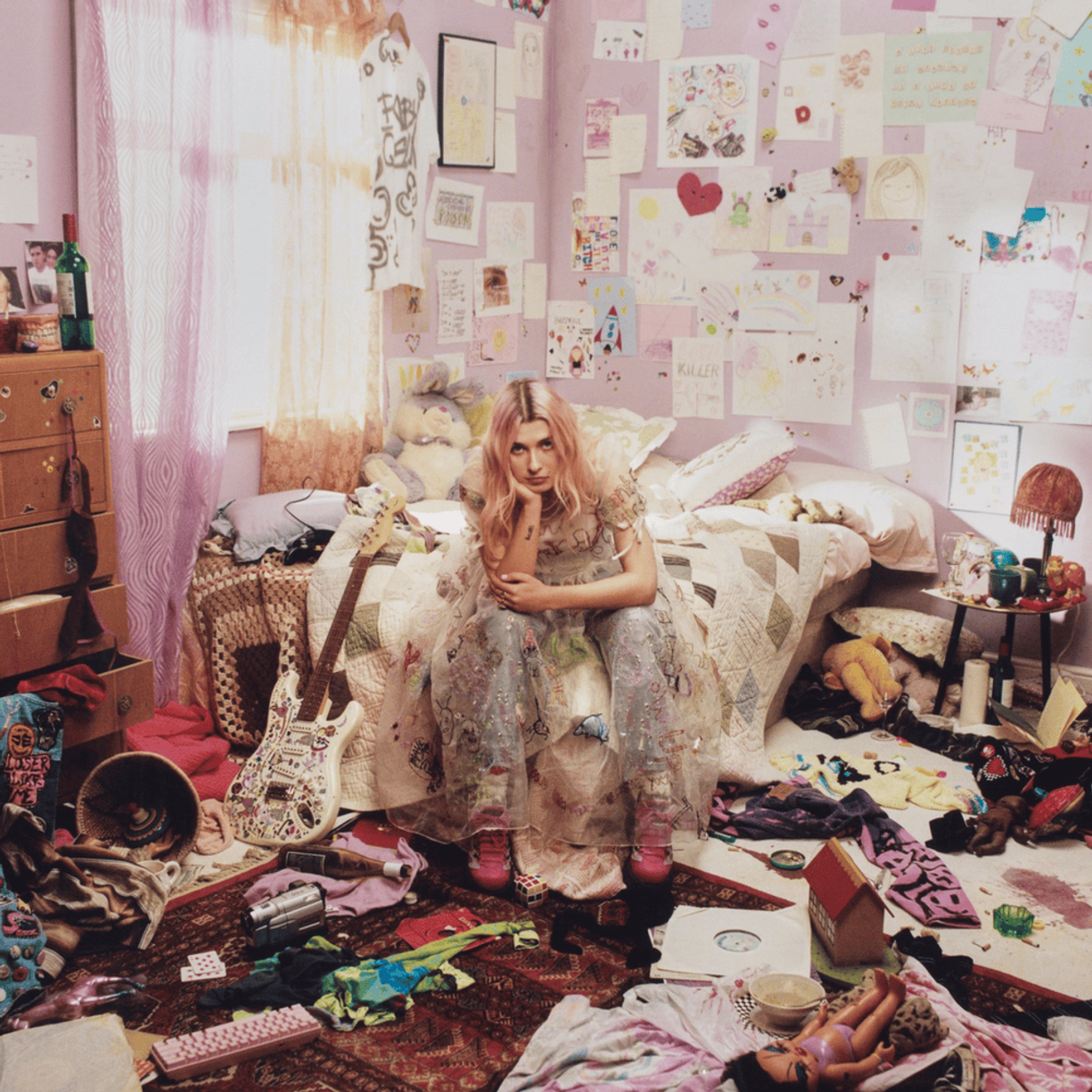BABY QUEEN - ‘QUARTER LIFE CRISIS’
Writer’s Rating: ⭐⭐⭐⭐
After bubbling up in the indie pop scene for the last three years, the time has come for Baby Queen (Arabella Lathum) to let her stories out to a generation that seems just as confused as she is on this 12 track debut.
With tracks featured on the hit Netflix teen rom-com, ‘Heartstopper’, songs on the soundtracks for both FIFA 22 and EAFC 24, as well as appearances at Lollapalooza, Sziget Festival and Reading and Leeds, the latter paired with some torrential downpours, it’s been a busy time on the lead-up to the album for her. However, unlike these accolades and immense highs for an artist mentioned prior, a lot of this record takes on some slightly darker undertones.
Despite the bubbly pop instrumentals and electronic synths littered throughout the project, topics of negativity, loneliness, unhealthy obsessions and life just simply being too much at points, it’s an album that a lot of people, fans or not, can heavily relate to.
Just take the opening track, ‘We Can Be Anything’, a song that almost plays as a representation as the angel on your shoulder and you are the devil. Crying at parties, disowning the world for everything in it being wrong and being simply overwhelmed are some vivid pictures to be painted on just the second single to the album, but sets up the rest of it greatly.
The culmination of this existential dread explodes in the title track, ‘Quarter Life Crisis’, later down the track list, with the line “I’m no longer naive, I’m corrupted” being a direct call back to a line from ‘We Can Be Anything’ (“Well don’t be so naive, it’s proven space is exponential”). The song is clearly meant to represent an emotional overload and someone’s brain being completely overwhelmed by thoughts and feelings they can’t comprehend. Whilst the theming evokes feelings of confusion, the instrumental is anything but, being grandiose and royal, a great way to parallel everything the track is about.
Whereas the lyricism and theming is what should be taking centre stage here; it is pop music after all, so the listenability of the album still has to be nailed. Across songs like ‘Dream Girl’ there’s glossy harmonies and synths, paired with the topic of a deep rooted obsession for a guy that’s with another girl, all coming together to make a pretty solid pop jam.
You’ve also got ‘Love Killer’, a track that almost plays as the continuation of ‘Dream Girl’ discussing all the ways Baby Queen is self-aware of the ways she reflects people away from her, despite realising the joys love and relationships can bring. It’s an infectious tune that is also very reminiscent of a Lily Allen style song that wouldn’t look out of place on her albums ‘It’s Not Me, It’s You’ or ‘Sheezus’.
‘Die Alone’ further dives into the hopeless romanticism of the record, by just straight up rejecting love and accepting that fact. Social anxiety and unhealthy comparisons to others seem to be the root of the cause, with the issue of people being too complex to create a connection also popping up, to make for a pretty heartbreaking ballad.
There are then tracks that tackle the dreaded fear instilled within us all of getting older, with the aptly titled ‘Grow Up’ being the first showing of that. Lathum illustrates some of the childish habits she can’t seem to kick and uses them as examples of why maturity isn’t her forte just yet. To “Stay up late, procrastinate and watch cartoons” is, once again, a situation that people have found themselves in way too many times to admit, but no line relates as hard for me personally, as, “And when I tie my laces, I still make two bunny ears”. Me too, mate, me too.
The later offering of age-related indie pop in the album, ’23’, is a slightly more carefree and all over the place cut on the album, talking about a same sex relationship and basically saying “screw it, we’re both young”. The hook perfectly encapsulates this with the line, “I can’t help myself, it’s just the way I feel” being a great representation of the album advancing and Baby Queen detaching herself from the negativity in her life, now that she’s talked about it.
As a whole, this album serves as a blank canvas for the youth of today, allowing Lathum to lay all her emotions and pent-up thoughts out on the table for everyone to revel in with her. It’s bouncy and fun synth pop at its core, yet reaches pure escapism and freedom at its peak, whilst not coming off as preachy or corny at all. Baby Queen looks to have a big career ahead of her and has the backing of an entire generation supporting it. I’m sure she’ll survive this ‘Quarter Life Crisis’ just fine.
You May Also Like:




